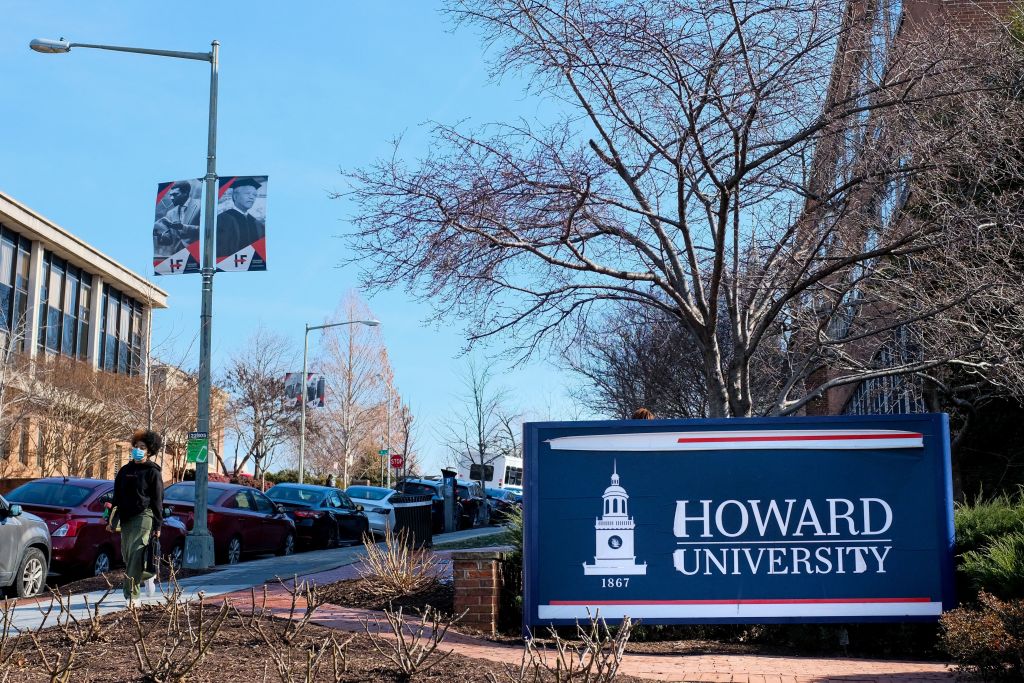How Howard Students Found Happiness During Chaotic Year
Source: MANDEL NGAN / Getty
When historically Black colleges and universities (HBCUs) are in the news, it’s far too many times because of nothing good.
In the last year, bomb threats, dorm issues, protests and technology problems were among some of the main headlines about Black college life reported by mainstream media. Those stories always depicted feelings of loss, despair and damage. Rarely did those stories of joy and resilience speak to the real and historic soul of our institutions.
MORE: Howard Hospital Staff Go On Strike In Latest Protest Demanding More From Renowned HBCU
Like other colleges, Howard University students were forced to adjust to their new normal this academic year by returning from remote learning to an in-person class structure while going to school during a pandemic. However, unlike most other schools, part of that “new normal” included watching and participating in student and adjunct faculty protests, experiencing isolation and battling depression.
In theory, college is supposed to encourage freedom and possibility. Yet many Howard students said they felt fearful and trapped. It was almost like they were waiting for another threat, another COVID-19 surge, or another protest to make them even more uneasy.
Students at #HowardUniversity are fighting for the right to safe and clean housing. Students report living with roaches, rats, mold, fungus, asbestos, flooding, and no heat. #BlackburnTakeover pic.twitter.com/xk8LrsoPbM
— IYSSE (@IYSSE_US) November 10, 2021
Following the tumultuous Blackburn Protests in October and bomb threats in February, Howard students were able to find comfort in their university’s community through concerts, open mics and intimate dorm discussions.
While the nation was engrossed in the drama on Howard’s campus, its students found a way to live productive lives while at times dealing with chaos.
In several interviews, Howard students Zoe Mickey, Trinity Holt and Mickenzie Wiggins told NewsOne they believe there’s a method to finding peace in pain.
“I found peace in putting my energy into finding things I enjoy. [I] reach out and join clubs where I have a supportive group” said Wiggins, a sophomore psychology major hailing from New York. “Having multiple different groups of people for different aspects of your identity is really crucial to get by.”
Holt, who is a junior political science major, went on to underscore how the social connections students made were a key factor in allowing them to maintain their joy.
“Even spaces like GroupMe (a virtual platform for participants to connect in groups) have helped me laugh through the pain,” Holt shared. “There’s constant friendly banter and even in tough situations, Howard students find a way to help each other out.”
Mickey, a sophomore political science student with a minor in dance, shares a similar sentiment as her peers. She said that for her to prioritize her mental health through all of the events that transpired this academic year, she needed to be around the people who provided her the most happiness.
“I like to prioritize my mental health by leaving my dorm, going outside and surrounding myself with people who give me genuine happiness. And people at Howard do that,” Mickey said.
In the face of racism, terror, and health disparities, the Howard students said they have found strength through unity.
“There is a special kind of joy that fills this university when students come together,” said Wiggins. “And I’m so thankful to be a part of that.”
SEE ALSO:
Howard University Faculty Reach Tentative Agreement To Thwart Threatened Strike

